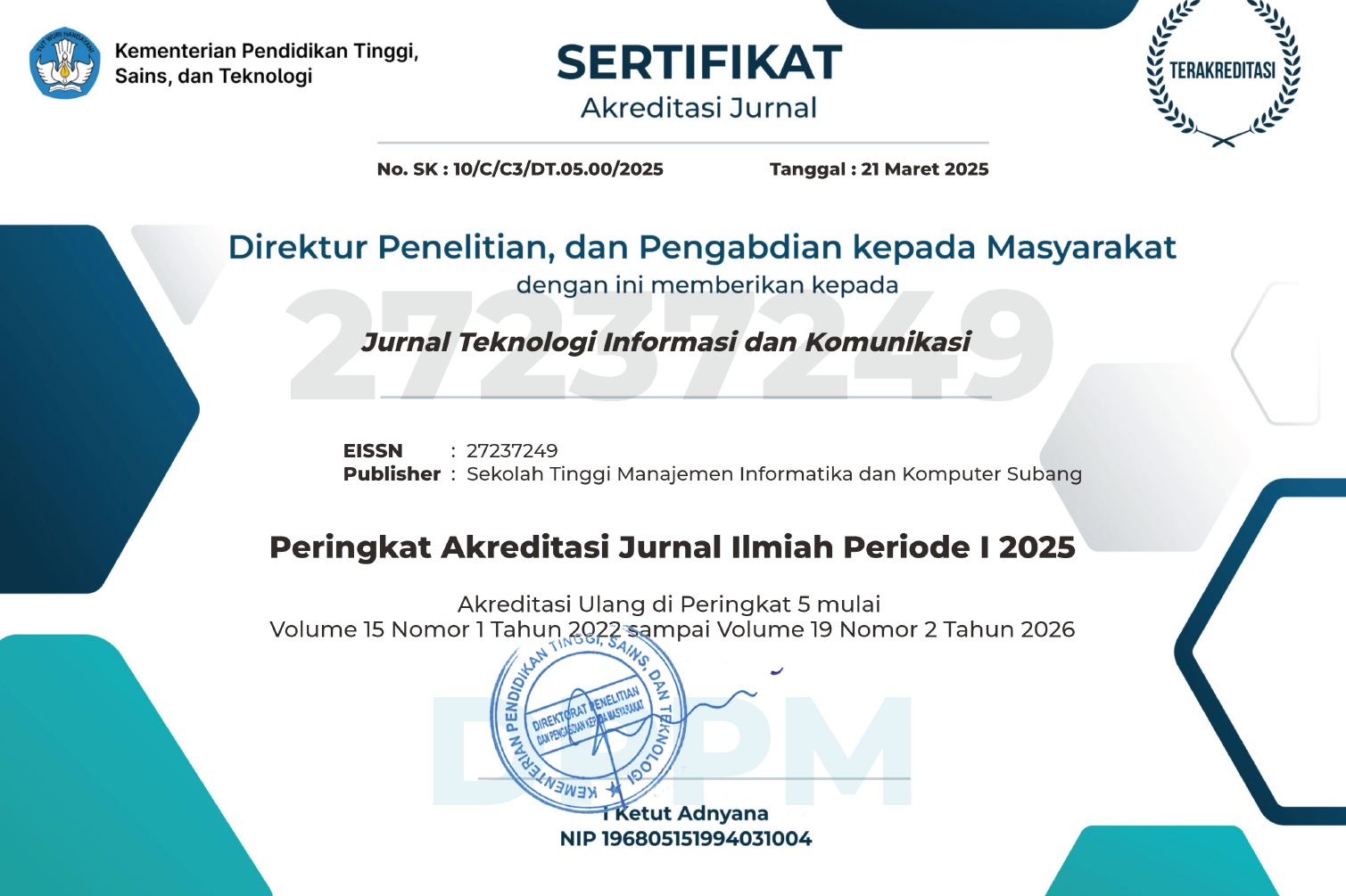Machine Learning Sistem Monitoring Limbah Pembuangan Pabrik Gas Berbasis Iot Menggunakan Algoritma C4.5 Pada Platfrom Blynk (Studi Kasus Pabrik Samator Cidahu)

 This Abstract has been read 160 times
This Abstract has been read 160 times
Abstract
Air pollution remains a major environmental issue, with NH?, CO, and CO? among the most harmful gases produced by transportation, industry, and agriculture. Increased concentrations of these gases can threaten human health and ecosystems. This research aims to design a monitoring device to detect CO and CO? levels in the atmosphere using Internet of Things (IoT) technology.
A prototype system was developed with an ESP8266 microcontroller, Gas sensor for gas detection, DHT22 sensor for temperature and humidity, and Fire sensor for fire detection. The collected data are processed using the C4.5 algorithm to classify air quality into five categories: good, moderate, unhealthy, very unhealthy, and hazardous. Results are displayed through the Blynk platform, allowing real-time monitoring and easy access for the public.
The case study was conducted around the Samator plant in Subang, where the system demonstrated the ability to provide timely and accurate information on air conditions. This IoT-based solution is expected to improve community awareness of air pollution risks and serve as an initial step toward environmental monitoring and control
Keywords: Pencemaran udara, ESP 8266, Udara, Sensor, Blynk, Algoritma C4.
CITATIONS
PDF Downloads
Metrics
References
R. W. Sinaga and R. Winanjaya, "Analisis data mining menentukan penerima bantuan langsung tunai pada Desa Pamatang Purba dengan algoritma C4.5," Jurnal Teknologi dan Sistem Informasi, vol. 3, no. 1, pp. 1–9, 2021.
A. Junaidi, "Internet of Things, sejarah, teknologi dan penerapannya: review," Jurnal Ilmiah Teknologi Informasi Terapan, vol. 1, no. 3, 2015.
J. Homepage, A. Roihan, P. Abas Sunarya, and A. S. Rafika, "Pemanfaatan machine learning dalam berbagai bidang: review paper," IJCIT (Indonesian Journal on Computer and Information Technology), vol. 5, no. 1, 2019.
B. Ba?aran, "What makes manufacturing companies more desirous of recycling?," Management of Environmental Quality: An International Journal, vol. 24, no. 1, pp. 107–122, 2012.
M. Xue, J. Li, and Z. Xu, "Management strategies on the industrialization road of state-of-the-art technologies for e-waste recycling: the case study of electrostatic separation—a review," Waste Management & Research: The Journal for a Sustainable Circular Economy, vol. 31, no. 2, pp. 130–140, 2013.
E. A. Prasetyo, "Sensor gas: pengertian, jenis dan cara kerjanya," Arduinoindonesia, Jun. 1, 2023. [Online]. Available: https://arduinoindonesia.id.
K. Y. Maulana, "Mengenal sensor suhu dan kelembapan DHT11," Anakteknik, Oct. 11, 2022. [Online]. Available: https://anakteknik.co.id.
A. Isnan, "Pengertian mikrokontroler: cara kerja, fungsi dan contohnya," SMPN3WOTU, Jan. 28, 2023. [Online]. Available: https://smpn3wotu.sch.id.
A. Faudin, "Apa itu modul ESP8266 berserta penjelasannya," Nyebarilmu, Jun. 22, 2017. [Online]. Available: https://nyebarilmu.com.
A. Rahman, "Apa itu Blynk IoT?," Teknik Elektro ITI, Jul. 6, 2023. [Online]. Available: https://elektro.iti.ac.id.
Downloads
Published
How to Cite
Issue
Section
License
Copyright (c) 2025 Rian Hermawan, Muhammad Arman Fahruroji, Ardhi Akmaludin Jadhira

This work is licensed under a Creative Commons Attribution 4.0 International License.

 Rian Hermawan
Rian Hermawan
 Politeknik Negeri Subang
Politeknik Negeri Subang








